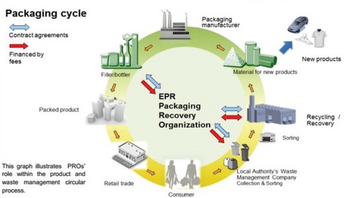Printed/Flexible Electronics
Coating Control – intelligent networked edge alignment for renewable energy Paid Members Public
Presented by Mauro Consalvi, BST North America The coating process is one of the most important and most sensitive production processes in the fuel cell and battery industry. In this process step, the quality, and the production efficiency in the manufacture of a fuel cell or a battery are decided
Advantages of Tungsten Carbide Slot Dies and Technical Solution Services Paid Members Public
Presented by George Yoshida, MMC RYOTEC Corp. At first, we would like to briefly introduce about our company. The main session will be about the advantage of using our characteristic material "Tungsten Carbide" which has a great impact in the slot die coating process. Not only the product
The Business Case for Driving Standards in Flexible Electronics Paid Members Public
Presented by John Maltabes, Applied Materials Web Coating GmbH
Static Protection Design for Printed Electronics Paid Members Public
Presented by Kelly Robinson, Electrostatic Answers LLC Electrostatic Discharges (ESD) or sparks can damage electronic devices. An energetic spark can cause thermal damage (burn components). And, the current surge from the spark can damage conductive traces and cause momentary high voltages that damage insulating layers. Static control for traditional semiconductor
Roll-to-Roll Nanofabrication Process for Flexible Cu Metal Mesh Transparent Conducting Electrodes Paid Members Public
Presented by Ziam Ghaznavi, Emerson & Renwick
Process Optimization in the Large-scale Manufacture of Flexible Hybrid Electronics Paid Members Public
Presented by Enid Kivuti, Sheldahl The presentation will provide an overview of proven paths to improve time to market, cost of ownership and use experience in scaling up production of printed sensors for the Medical and Automotive markets. Beginning with material choice and available manufacturing schemes and concluding with proposed
Anisotropic Conductive Films made by Electric Particle Alignment on R2R Paid Members Public
Presented by Henrik Hemmen, CondAlign AS (Norway) Anisotropic conductive films made by electric particle alignment on R2R CondAlign AS develops anisotropic materials and production technologies based on our patented particle alignment process. In the CondAlign process, electric fields are applied to polymer matrices to manipulate and align dispersed particles. The

